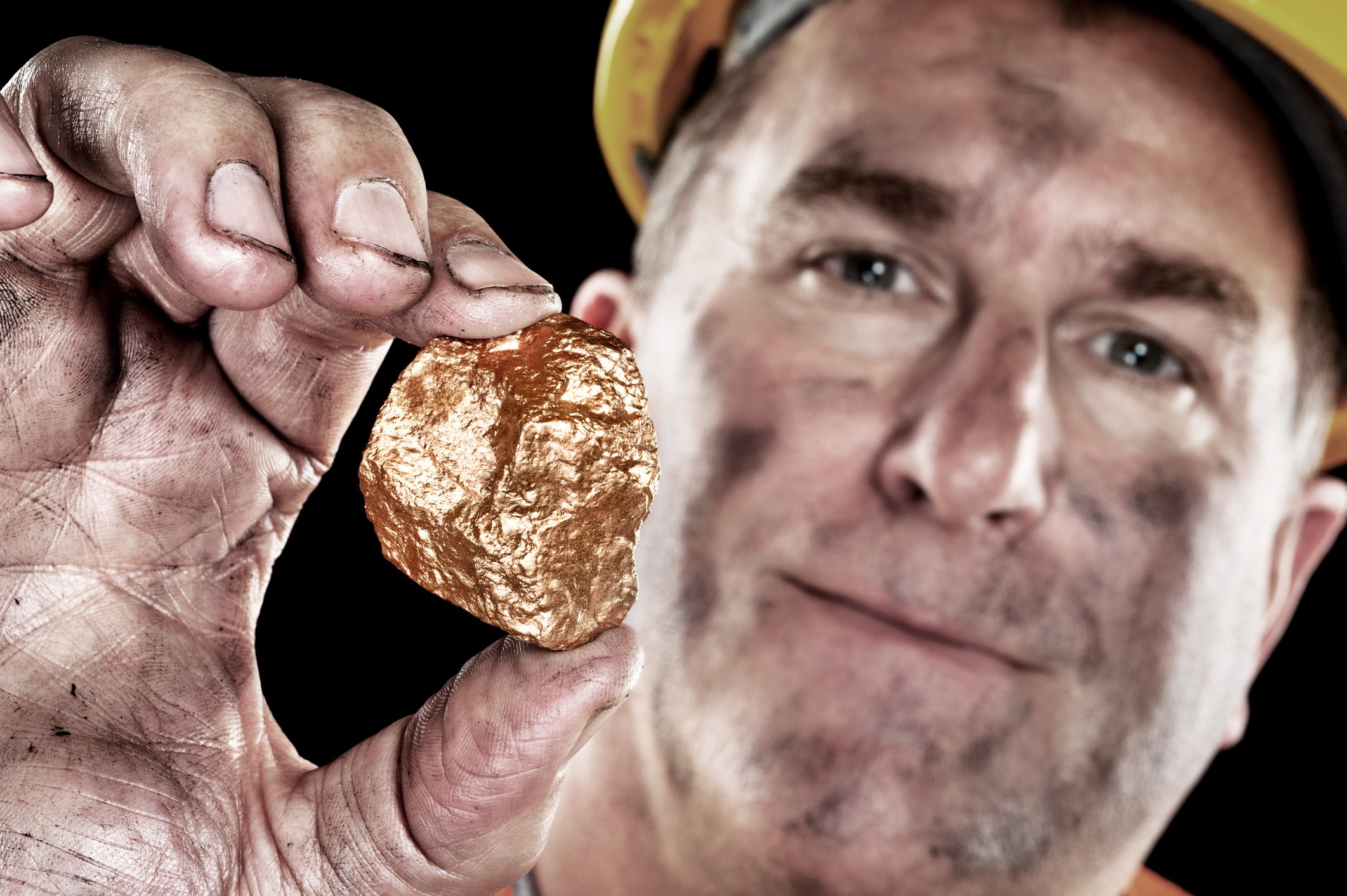When you think about mining, things like gold, coal, copper, and iron ore come to mind. Oil is usually looked at as a distinctly different business. However, there are a number of miners that have reached into the oil space, with varied results. The poster child for ill-advised oil investments is Freeport-McMoRan Inc. (FCX 4.35%), but there's also BHP Billiton Limited's (BHP 0.63%) U.S. shale movements to monitor.
However, every miner approaches oil differently, which is why you should also watch Teck Resources Ltd (TECK 5.64%) and streaming company Franco-Nevada Corp (FNV +0.12%), where the oil outcomes look like they might be more positive.
That was a bad call
In 2013 copper and gold miner Freeport-McMoRan bought two oil and natural gas companies. The idea was to diversify the business into a sector that was performing relatively well during a broader commodity downturn. The company funded the move with debt, increasing long-term debt from roughly $3.5 billion before the acquisitions to around $20 billion when they were completed. And then, in mid-2014, oil prices tumbled and turned the energy investments into heavy drags on performance.

Image source: Getty Images
Freeport has since extracted itself from the oil business and refocused on its core mining operations. Meanwhile, a dispute with Indonesia over Freeport's ownership of the giant Grasberg mine has taken center stage -- presenting a whole new problem for the miner, since Grasberg contains about 30% of its copper reserves and all of its gold reserves.
But investors are continuing to pay for the ill-advised oil foray, as long-term debt is still over three times higher than it was before the acquisitions. As 2018 progresses, you'll want to watch what happens with Grasberg, but don't lose sight of the lingering debt impact left over from Freeport's oil investment. That oil debt is still a notable constraint to worry about.
Giant diversified miner BHP Billiton, meanwhile, isn't exactly new to the oil business, with energy assets spread across the globe. However, it got caught up in the U.S. shale boom, spending around $20 billion to buy U.S. onshore assets in 2011. When oil prices crumbled, that spending quickly turned into a problem. The company wrote down those assets by over $7 billion in 2016.
Activist investor Elliott Management has been pushing for changes in BHP's oil portfolio, with BHP initially resisting the investor's efforts. In 2017, however, BHP materially changed its tune and said it would look to sell its U.S. shale assets, hoping to dispose of them within two years. BHP is a large and financially stable miner, so this mistep isn't a huge deal, but dealing with dissident shareholders and a big asset sale is distracting. Now that there's a direction, watch for progress on the sales front in 2018. It will, in the end, be a good thing for the company to put this saga behind it.
Not every oil bet is a bad one
On the other side of the oil equation is Canadian coal, copper, and zinc miner Teck Resources. The company owns roughly 20% of the Fort Hills Canadian oil sands mine. Teck and partners Suncor Energy and Total decided to move ahead with the Fort Hills project in 2013, just before oil prices began their tumble. It was touch and go for a bit, with investors concerned that Teck wouldn't be able to fund its share of the construction costs.
However, Teck stuck it out, and the Fort Hills project is expected to reach full production capacity by the end of 2018. That means that each quarter of the year should see an increasing benefit from oil sales. Better yet, this is basically a new line of business for Teck, and will materially increase the miner's diversification. The best part, however, is that oil sands are mined, not drilled. So Teck isn't venturing into a radically new line of business.

The cost of oil from different sources. Image source: Teck Resources Ltd
And while some view oil sands as an expensive energy source, that's only partly true. Oil sands projects cost a lot of money to build, but are relatively cheap to operate after that point. So the big costs are already in the past, and Teck is now set to benefit from an oil asset with an expected 50 year reserve life. Keep an eye on Teck's results in 2018 to see just how beneficial Fort Hills ends up being.
The last company up is Franco-Nevada, which isn't really a miner -- it's a streaming and royalty company. That means it provides miners cash up front for the right to buy things like silver and gold at reduced rates in the future. The streaming model works best when miners are struggling because that's when they are desperate for cash and most likely to ink new deals with companies like Franco-Nevada. Franco-Nevada is happy to take advantage of the opportunity, of course.
However, with oil prices at relatively low levels in recent years, Franco-Nevada saw an opportunity to step into the energy space. Like miners, oil and gas companies were happy to have the cash. Franco-Nevada now gets around 7% of its top line from energy assets, with the expectation that this will as much as double over the next couple of years.

Franco-Nevada's revenue sources, with oil starting to take a larger role. Image source: Franco-Nevada Corp
What I like about Franco-Nevada's energy play is that it hasn't changed anything about its business approach, it's simply exchanging cash for an interest in the production of a commodity. You'll want to watch the growth here to make sure the streaming company's energy bet plays out as expected.
A lot of energy in the mining patch
You may not have expected so much oil and gas news out of the mining sector, but there it is. At this point I think there's too much uncertainty surrounding Freeport for most investors, and I'd avoid that company. I don't have much of an opinion on BHP except that the oil moves it's making today are clearly a distraction that will be nice to see end. I am, however, fond of Teck and Franco-Nevada. Though neither is particularly cheap today, their oil investments look like winners to me.









